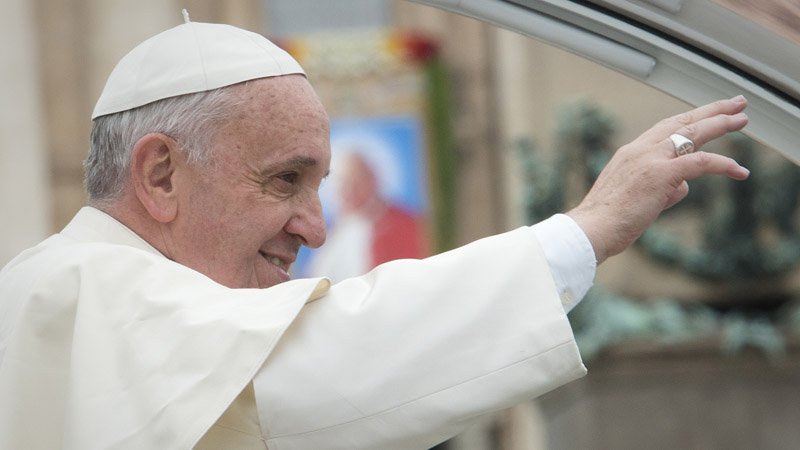When Pope Francis released his groundbreaking encyclical Laudato Si, there were hopes his moral clout would transcend the US partisan divide on climate change.
Surely even Republican Catholics, a sceptical crowd, had to listen to the head of their church calling on them to care for God’s creation?
Not so, according to a study from the University of Pennsylvania, published in the journal Climatic Change. The Pope’s intervention only polarised the debate further.
“While Pope Francis’ environmental call may have increased some individuals’ concerns about climate change, it backfired with conservative Catholics and non-Catholics, who not only resisted the message but defended their pre-existing beliefs by devaluing the pope’s credibility on climate change,” said lead author Nan Li.
Weekly briefing: Sign up for your essential climate politics update
The findings are based on 20-minute phone interviews with nearly 1,400 people before and after the Pope’s letter was published in June 2015.
Prior to the Pope’s message, Pew polling showed US Catholics were split on similar lines to the general population. Of those identifying as Democrats, 62% accepted the scientific consensus that climate change is happening and driven by human activity. Among Republicans, it was 24%.
Afterwards, researchers found that liberals who had heard of the encyclical were more concerned about climate change than those who hadn’t. But conservatives became less concerned, discrediting the Pope rather than adjusting their political views.
This was reflected in comments by high profile Republican Catholics at the time.
“I don’t get economic policy from my bishops or my cardinals or my pope,” said presidential candidate Jeb Bush.
“The church has gotten it wrong a few times on science, and I think we probably are better off leaving science to the scientists and focusing on what we’re good at, which is theology and morality,” said former senator Rick Santorum.
As it happened: Pope Francis’ climate call to action in encyclical
Laudato Si was drafted by Cardinal Turkson in consultation with climate scientists as well as the scriptures, emphasising the impact of global warming on the world’s poor.
It prompted supportive statements from a range of other faith leaders and was widely celebrated by environmentalists.
In further evidence of the power of cultural identity, though, it backfired with Republican Catholics. Faced with a disconnect between the pontiff’s views and those of their political leaders, generally sided with the latter.
The study concluded the “worldviews, political identities and group norms that lead conservative Catholics to deny climate change override their deference to religious authority when judging the reality and risks of this phenomenon.”
